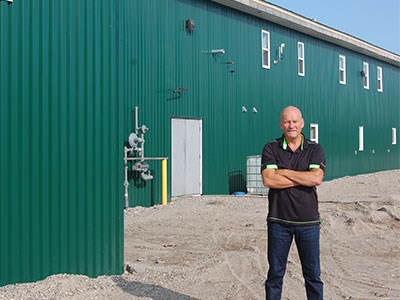Throughout his years in the construction industry, James Kennedy has seen his share of building materials. But it wasn’t until he attended a trade show in 2012 that he discovered a new system that measured up to his high expectations.
“I was actively pursuing a better way to build,” Kennedy said. “I saw the new codes coming and realized that we’ve just got to do something, especially to stay ahead of the curve.”
His find was a lightweight building panel composed of light-gauge steel frames that are pre-insulated with rigid, fire-retardant modified expanded polystyrene resin (EPS). The energy-efficient panels help reduce build time, have high R values, and resist the growth of mold and mildew.
As building codes become more stringent, requiring builders to produce ever-tighter building envelopes, the growth of mold and mildew is increasingly becoming an issue.
“When you seal a house tighter, obviously it’s not breathing the way it normally would, and if you don’t have sufficient HVAC then you’re going to get mold,” Kennedy said. “So there’s more and more mold springing up in houses everywhere.”
The panels had formerly only been produced in the United States, but had been imported to Canada with some success. Kennedy secured the Canadian rights to the technology and in 2013 opened the first Canadian plant in Geraldton: Greenstone Structural Solutions (GSS). The $4-million facility measures close to 13,000 square feet and, when running at full capacity, employs in excess of 60 people.
The panels are ideal for residential, commercial and industrial use, said Kennedy, who additionally owns construction company Havilah Holdings and runs the Geraldton Home Hardware Building Centre. Since coming online, his plant has manufactured panels for clients in Manitoba, Saskatchewan and southern Ontario, as well as Northern Ontario fly-in communities.
Some claim building with the Greenstone panels can actually be cheaper, although Kennedy is hesitant to make that assertion. He prefers to look at it from a value perspective, assessing the overall quality of the build.
“The product itself, although it may be marginally more, it’s much more valuable an asset once you have the house built,” he said.
Others are not so conservative in their assessment. Last fall, after constructing four GSS-built houses on the Mississagi First Nation near Blind River, the First Nation conducted a study comparing the units to four ICF (insulating concrete form) houses and four stick-built houses. The data found the GSS-built homes to be of a “far superior” quality, Kennedy said.
His company is doing ongoing testing for multi-level structural fire tests, which has allowed him to, so far, expand his market to four- and five-storey buildings, and Kennedy has struck deals with major suppliers across Canada.
Geraldton, with its ready, skilled workforce, is proving a strategically advantageous location from which to operate, Kennedy said. Being located on the Trans-Canada Highway between the two coasts, with a direct route into the northwestern United States, gives the company an edge when it comes to servicing its geographically diverse range of clients.
“Eventually, we will need a factory in the GTA or Golden Horseshoe area somewhere to cut down on shipping costs, of course, but not until we have that volume we’re demanded,” he said. “In the meantime, we can readily service that out of here.”
The Geraldton plant is already positioned for an expansion. Thinking ahead, Kennedy constructed the Greenstone factory with “double-sized everything,” making it easy to double its capacity if and when the demand is there.
The venture has been a boon for the area, whose workforce has been devastated by mill closures in recent years. Kennedy is sourcing his maintenance and repair needs from Thunder Bay, while also sourcing all raw materials from home.
“It’s helping wherever we’re buying our beads, or our steel, or our adhesive — domestically, Canadian, I’m talking about,” he said. “Definitely, it’s helping the whole country.”




